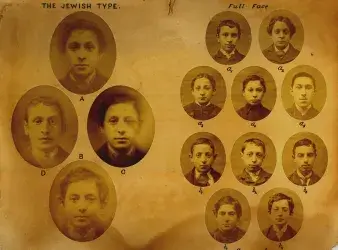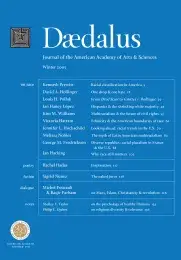
Image:
Photographs of "The Jewish Type," compiled by Sir Francis Galton (1822 -1911). An English explorer, anthropologist, and statistician, Galton invented the word "eugenics" to denote scientific efforts to create
a population consisting entirely of superior men and women through selective breeding. Assuming that inherited facial characteristics were correlated with inherited mental traits, Galton supposed that a "system of pictorial
statistics" offered a useful index of a race and the quality of its human stock. See Ian Hacking on "Why Race Still Matters, pages 102 -116: "Naturalism about race, far from being an atavistic throwback to an era well left behind,
is a topic for today... not because the races are ... essentially different kinds of people. But because already we know that the races are not only statistically significant classes for some diseases, but also statistically useful ... racists will try to exploit the racial difference ... we need to be fully aware of what is involved." Image held by Galton Papers, Library Services, University College London.
